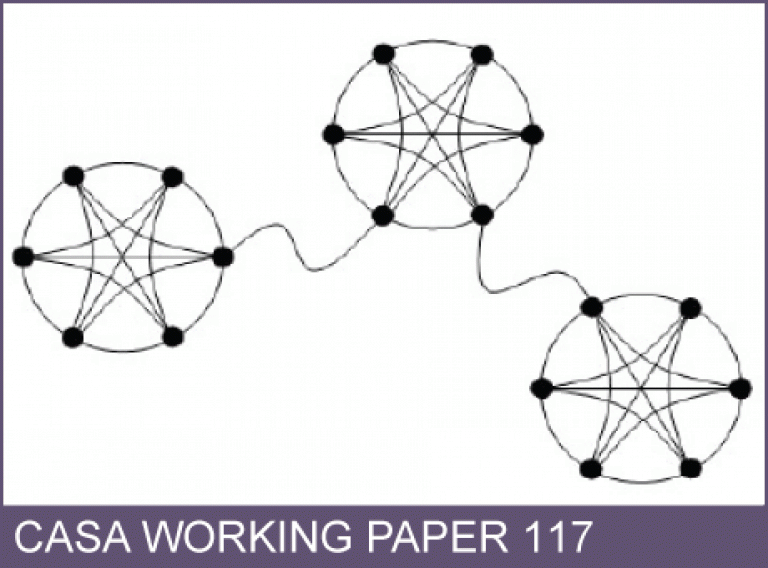CASA Working Paper 117

1 March 2007
Complexity in City Systems: Understanding, Evolution, and Design
As we learn more about the world and reflect on its meaning, an overwhelming sense of inadequacy in our ability to both understand and change it has developed. In many disciplines, the idea of 'complexity' as a coherent perspective for organising our knowledge has come to the fore. These 'complexity sciences' first evolved from ideas associated with dynamic systems through ideas about chaos, nonlinearity, disruptive technologies, emergence and surprise. Recently they have begun to infuse areas as diverse as postmodernism and management. Cities and planning have not escaped this force, indeed in some respects they are in the vanguard of these developments.
In this essay, we will sketch how this movement has evolved. Throughout we make a key distinction between the evolution of cities and the processes used in their planning and design, first fashioning complexity around the notion of the city as a system but then moving to examining how problems of their design and planning reveal a rather different type of complexity. We conclude with speculations about fostering change in cities in the light of this complexity. We propose a somewhat less invasive, more sensitive bottom-up style of physical planning that is in stark contrast to the institionalisation of planning and its practice which still dominates most developed societies.
This working paper is available as a PDF. The file size is 736KB.
Authors: Michael Batty
Publication Date: 8/3/2007
 Close
Close

